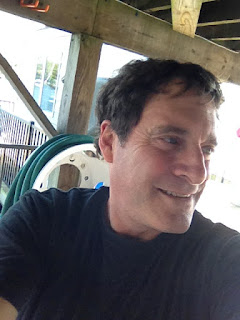Second question, Robert, and it’s related to what you just posted. Do you think it’s possible for a film director to have the same unique voice of an author?
Hi, Laura! Sorry it’s taken me so long to respond, but I really had to think this one over! And please understand that my answer only covers films, not television or cable series, and that what I’m saying is again, only my take on the situation. At one level, I think I’m like most people in that I follow directors and actors, and that’s why I’m watching a movie. I can remember how popular the debate was in film school with Truffaut, Goddard, and others, claiming that the director is the author of the film. But does that mean a film director has the unique voice of someone who writes novels?
My answer is … not very often!
A director with a unique voice is an exception. Especially after Spielberg and Lucas turned movies into a spectacle that could be enjoyed by a larger, worldwide audience that didn’t necessarily speak English. Sure. There are exceptions. I never needed to see the credits in films made by Hitchcock, Kubrick, Bertolucci, or Kurosawa to know by their style and “voice” that they directed the film. You may be able to list a handful of others, but still, it would be a small list. Most directors have no personal style at all and shoot coverage.
One of my favorite stories is the making of The Maltese Falcon. The film was directed by John Houston. Instead of laboring over the project, he handed his assistant a copy of the novel by Dashiell Hammett, told her to transcribe the text to screenplay format, then went fishing in the Gulf of Mexico. If you ever get a chance to see the screenplay, you’ll realize that she did just that. The screenplay is the novel word or word, the chapter breaks replaced with scenes.
Which brings us back to your question, and my new answer. Does a film director have a unique voice like an author? And my reaction, for the most part is, no, but that’s okay. The reason I go to a movie might be based on who directed the film and who’s acting in it, but what keeps me in the seat is the screenplay. The story. The man or woman who wrote the film. A film could be poorly photographed, the actors could be mediocre, the director’s touch nonexistent, but the film could still be good, even great, if the story’s great. And just the reverse is true as well. If the story stinks, a great director, great cast, and great cinematography could never save the day or keep us in our seats. It would always be seen as a bad movie!

John Truby's Master Writing Class
Hope this helps a little and much thanks for asking such a fascinating question. By the way, if you want more on this kind of thing, I really suggest reading The Anatomy of Story by John Truby. It’s a great book by a friend of mine whose knowledge about the history and meaning of stories is unmatched. I personally believe that it should be a mandatory read for any creative writing course.
All best,
Robert
ROBERT ELLIS WRITERS BLOG
8


No comments:
Post a Comment